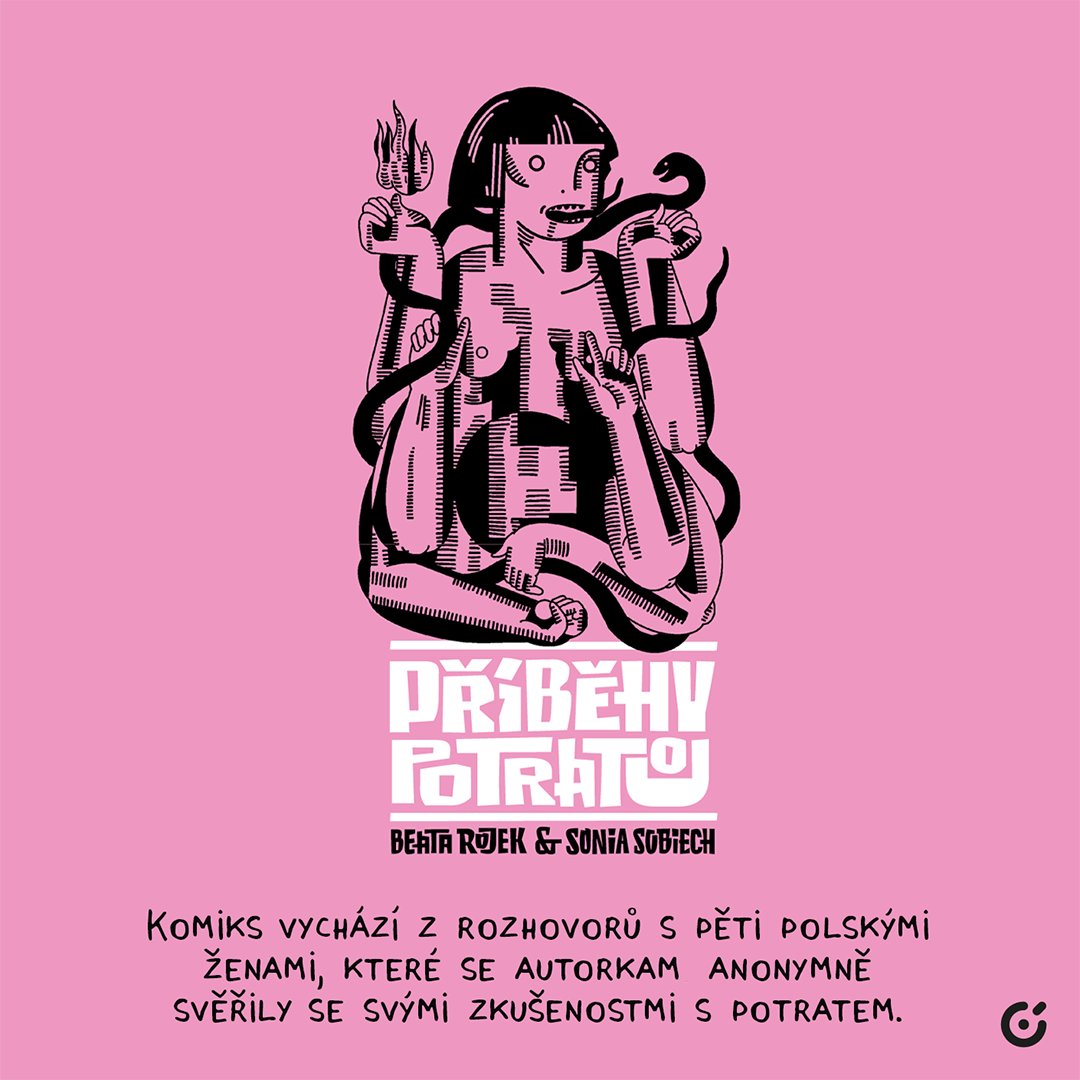The comic book came into being based on conversations with five Polish women who anonymously shared their experiences of abortion with the authors. However, this is no dry account or report. Fantasy characters, the order of dreams and symbols, are weaved into the mesh of true stories with poetic movement. The authors boldly integrate their personal sensitivities and imaginations creating an engaging, distinctive style of storytelling.
From painful loss to relief, from a feeling of support and safety to a stifling atmosphere of being hounded – these 5 stories show how wide the spectrum of circumstances and emotions accompanying abortion is. Free from judgement, the narration develops at its own rhythm, giving the heroes time and space to share their experiences in a strengthening and safe way, also inviting the reader to listen sensitively and attentively.
Marta Niedźwiecka, a psychologist and populariser of science in the field of sexology, wrote about the comic: "What is the black box of the Polish woman? A record of her traumas, dramas and decisions, precisely inscribed in the dynamics of violence present in society. What is a black mother? An aspect of womanhood that has long been pushed into oblivion and overlooked. It is the distinguishing part of us that gives a fuller chest to a stronger child. This story will not make you feel better. It's a narrative that may be darker than bad dreams and truer than anything you see in reality."
Sonia Sobiech (1986) is a cultural anthropologist who writes, directs and edits films, among other things. Her work creates the conditions for sensitive social processes and fruitful teamwork. She cultivates dill and utopianism.
Beata Rojek (1985) is the daughter of Andrej and Magdalena. She is an artist dedicated to painting, drawing and other forms of transforming ideas into images. Abortion Stories is her second comic book.
